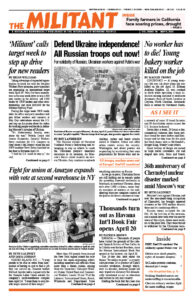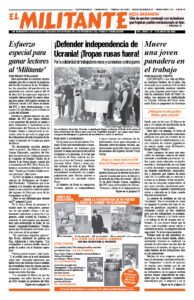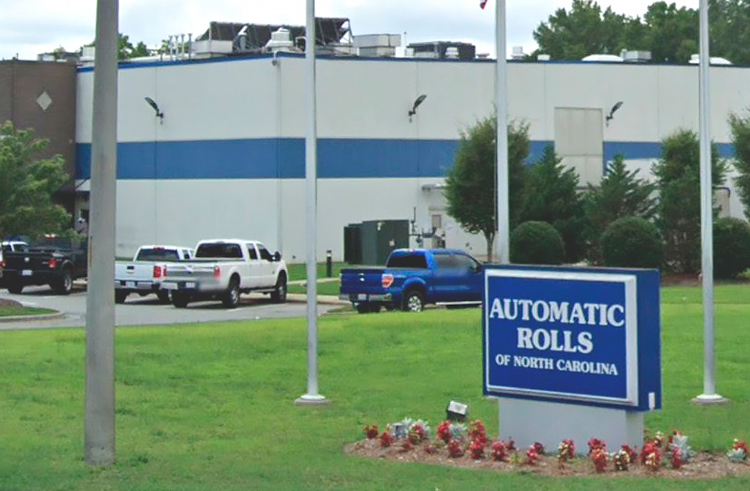CINCINNATI — A young woman’s life was cut short when she was killed on the job April 16. Bibiana Arellano Delabra, 22, was crushed to death while operating a large industrial mixing machine at nonunion Automatic Rolls of North Carolina in Clayton, North Carolina. Automatic Rolls is owned by Northeast Foods, a network of some 10 bread factories and 30 distribution centers across the U.S. Eastern Seaboard.
Seven days a week, 24 hours a day, commercial bakeries like these produce bread for store shelves and hamburger and hot dog buns for the giant fast-food chains such as McDonald’s, Burger King, Wendy’s and others.
Giant batches of dough are mixed in huge metal containers, cut and shaped into rolls, buns and bread, dropped into large pans, sent on a line through ovens and coolers, then bagged, boxed and shipped out by the hundreds of thousands each day. Production is continuous and the line doesn’t stop. If there is a problem with the packaging machines, the bread keeps pouring out, rapidly “racked off” onto trays, stacked and set aside to be put back on the line when it’s up and running again.
Arellano’s death wasn’t an “accident.” It was the result of how production is run under the profit system, especially when there’s no union for workers to protect ourselves. The pace in these bakeries is intense, and overtime and weekend work are common, leading to fatigue that slows reaction time and dulls judgment, a safety hazard itself. I know. I work at a bakery in Cincinnati, where, thankfully, we have a union.
Many of these food-producing companies hire “temporary” workers through employment agencies, for jobs that aren’t “temporary” at all. Often the agency workers receive even less safety training than employees hired directly by the company and aren’t allowed to join the union if there is one. The bosses encourage “permanent” workers to look down on the “temps.”
Many bakeries like these, as well as cereal and snack plants and grain elevators, are organized by the Bakery, Confectionery, Tobacco Workers and Grain Millers union. Last year the BCTGM carried out chain-wide strikes for wage increases and better schedules and working conditions against Kellogg’s, Nabisco and Frito-Lay, and in southern California against Jon Donaire Desserts, successfully pushing back some of the employers’ attacks.
My BCTGM-organized co-workers expressed concern and anger when they learned of Arellano’s death. “Safety is so important, and it’s up to us workers to insist on it. No product is worth being hurt or killed for,” Monica Dunn, chief shop steward, told me April 22.
“Unions play a huge role in safety, but you have to be constantly working at it in different situations,” Mark Lee, principal officer of Bakery, Confectionery, Tobacco Workers and Grain Millers union Local 57, said in a phone discussion April 24. The local’s 800 members in Ohio work at bakeries as well as cereal and snack plants.
Each year more than 5,000 workers are killed on the job in the United States, the AFL-CIO reports. In 2019, there were 5,333 workers (that’s 15 a day) killed at work, and some 95,000 more died from diseases resulting from conditions where they work.
The toll taken on workers by capitalist production is marked each year by the labor movement. April 28 is Workers Memorial Day. If an event is planned by unions in your area to highlight the need for unions to fight for safety on the job, get your co-workers to join in participating.
Capitalists operate by exploiting workers’ labor power to make profits. The faster the pace of production, the more work is piled on the shoulders of each worker, generating more profits. When unions are strong, workers act together to push back against hazardous working conditions and make sure new workers are trained to work safely and look out for one another.
All work can be done safely. No worker like Bibiana Arellano Delabra has to die on the job. But to make this a reality, workers need to organize and use our unions to take control over all phases of production, including line speeds, crew sizes, schedules and more.



